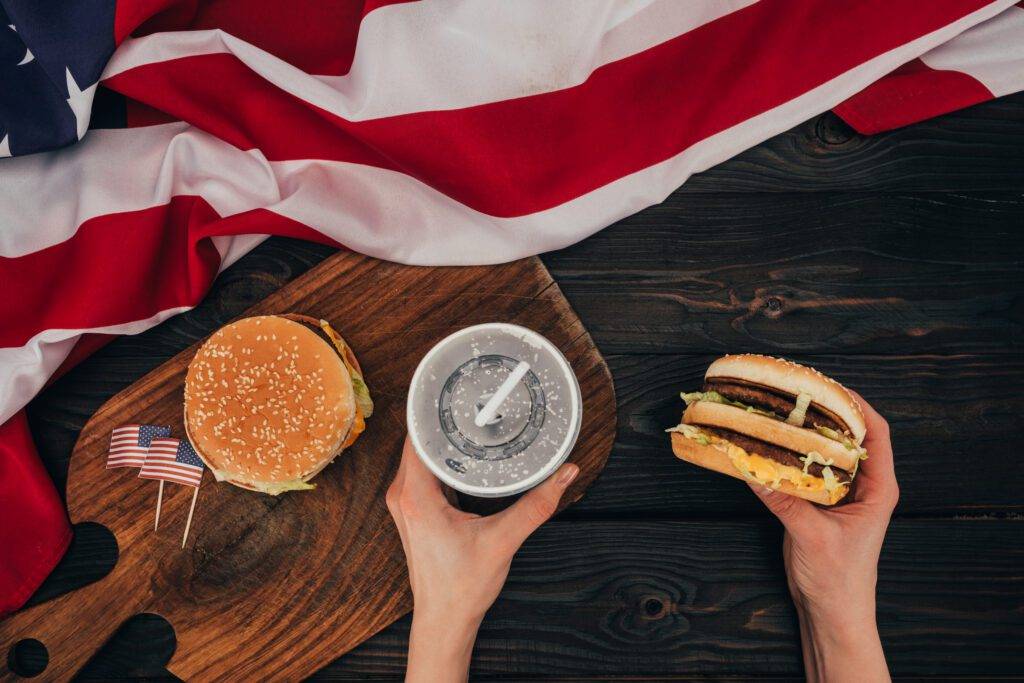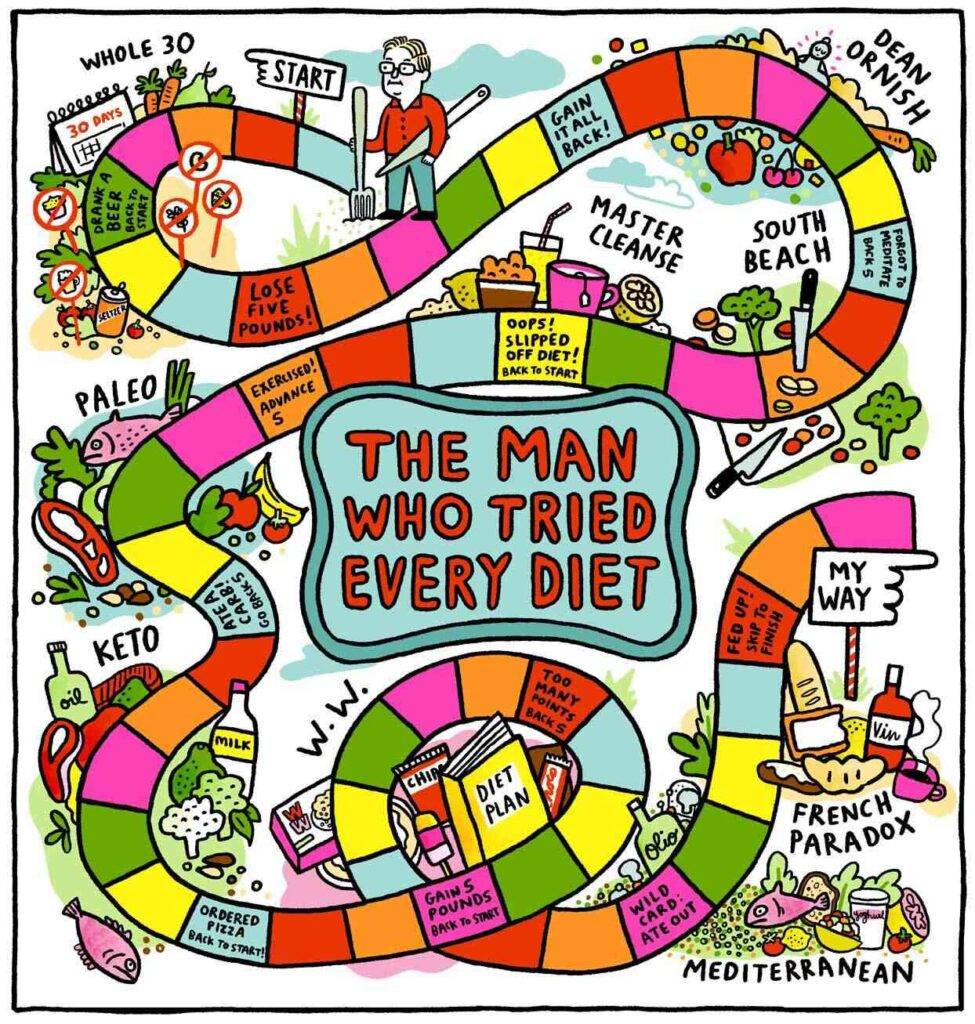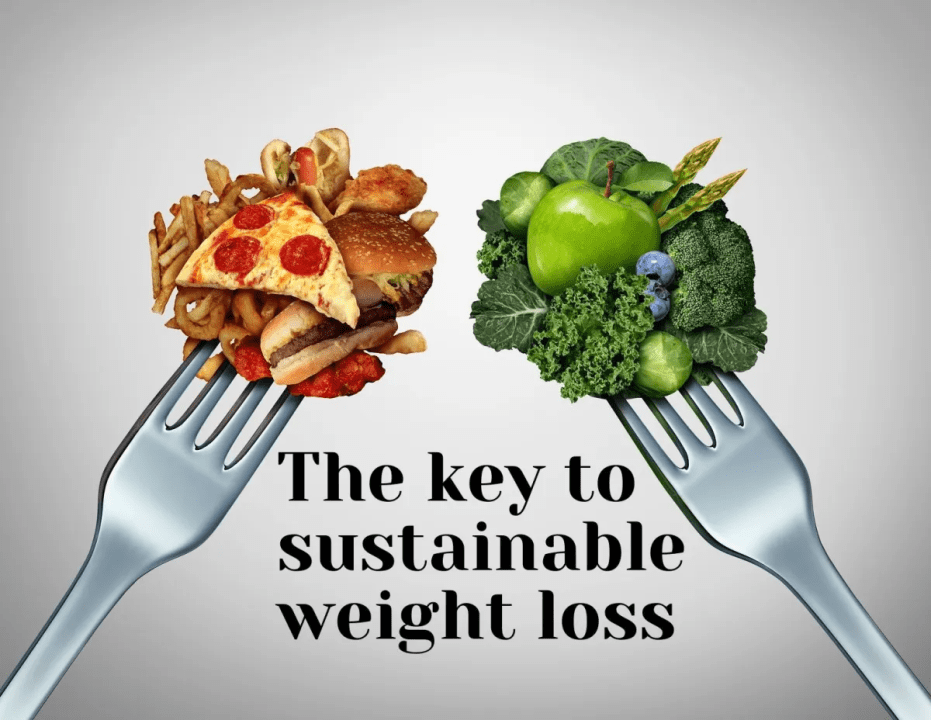A staggering 45 million Americans go on diets each year; in contrast, studies show that only 20% of overweight individuals achieve long-term weight loss success.
Perhaps you are the one on the list, right?
“The reality is that, more often than not, the journey of weight loss fails to deliver lasting results, and shedding pounds doesn’t necessarily lead to improved health.”
Meanwhile, it’s important to note that some weight-loss diet plans help for a specific short time but may be unsuccessful in the long run. It’s factually right that most diet plans fail, leading to frustration and disappointment for those who try them. Understanding why diets don’t work is crucial, especially for you and anyone looking to achieve lasting weight loss and a healthier lifestyle. In this piece, let’s understand what research says and what we should do to get sustainable results.

What is a diet plan?
The word -diet plan- is buzzing around in social media, TV commercials, billboards, magazines, Pinterest, and even our friends and family. Anyone hungry for transformation and weight loss heard of it. So, what is the actual meaning of it?
Diet actually refers to an eating regimen that requires cutting portions, eating severely in a selective manner, avoiding and eliminating, or adding and increasing the intake of entire food groups: carbs, fats, protein, and whatever. A diet plan for weight loss, particularly when we say it means choosing to abide by the food guidelines and restrictions due to personal choice (think cutting carbs, counting macros, or abiding by a strict eating schedule) to get the desired results.

How does a Diet Plan work in general?
A diet plan works like a blueprint intended to guide people on what they should and should not eat to accomplish certain goals. Based on this understanding, a diet plan generally implies aiming at carbohydrate intake to create a calorie deficiency that takes in less energy than one uses. The following principle is supplemented by a factual analysis revealing calorie restriction as an important element of weight loss. For instance, research has established that diets low in energy density and characterized by fruits and vegetables can greatly enhance weight loss by making it easier to achieve energy limitation status.
Reasons why diet plans don’t work?

Have you ever wondered why your diet plans are not working? You are not alone- let‘s work together with Weight Loss Revolution to uncover the hidden pitfalls of popular diet plans.
Reason#1: Unrealistic Expectations
The world is full of promises of rapid weight loss, and it’s common for you to fall into unrealistic expectations. The allure of immediate results can foster the cycle of frustration and frustration, as they tend to believe that they can achieve significant weight loss in a matter of weeks
“Most diets fail because they focus on food instead of lifestyle changes.” — Dr David Ludwig”
Whenever you set a weight loss goal or a New Year resolution, always keep in your mind that “slow and steady win the race.”If you are setting a new year resolution for weight loss, take a few minutes and check this out.
Reason# 2: Dieting Can lead to bad relations with foods
Restrictive dieting and eliminating food groups for quick results also affect the eating pattern.
In addition, most dieters are obsessed with numbers on the scale, allowing that number to haunt them and dictate their mood throughout the day, what they eat, and sometimes even their value in the world.
Reason#3: Deits only focus on food, not overall health
Many diets lack essential nutrients due to their restrictive nature, leading to nutrition imbalance and bad health. The International Food Information Council states that dieters usually eliminate the entire group of foods, which can result in deficiencies and increased cravings for those very foods.
“You can’t out-exercise a bad diet.”
Moreover, there are so many aspects of health, and what you eat is one of them. Living a healthy lifestyle has to do with a lot more than diet alone. There are actually 7 other dimensions of wellness aside from the physical aspects. These include emotional, social, mental, occupational environment, spiritual and financial health.
Reason# 4: Ask to do too much at all once, Making it hard to maintain
Another common reason is that most people fail due to overburden to achieve that goal. Like the 21 days this, 30 days that make them anxious to follow that hard and restrictive diet.
“The best diet is the one you don’t know you’re on.” — Brian Wansink”
Dieters are programmed to get you big results as quickly as possible; for that, they are demanded to make dozens of changes overnight in such a short time frame. When there’s so much change all at once, it’s nearly impossible to keep up with it all.
Reason# 5:Diets are One-size -Fits-All: They don’t take your unique body and lifestyle into consideration
Everyone’s body is very different, so everyone’s needs vary. Following a popular diet’s guidelines doesn’t always align with your unique wants and needs.
While it may seem easy to pick a diet and follow it with hardship, it easiness. Underlying conditions, weight, height, personal lifestyle goals, genetics, and allergies can all affect the body’s needs.
For example, a person with health issues could be seriously harmed by the ketogenic diet, as it cuts out a majority of carbs. Or, consider the fact that often, food recommended for certain diets is really expensive, and they just may not be affordable for some people.
Things to do -Key Strategies for Sustainable Weight Loss

With 65% of dieters returning to their pre-diet weights within two years, it’s clear that quick fixes don’t work. Here are some strategies you can incorporate into your lifestyle:
1. Establish Realistic Goals
In this strategy, an individual should aim to achieve realistic goals that they would easily be able to accomplish in the future. Forget about radical interventions and opt for more realistic targets like losing 1-2 pounds per week instead of working for a significant weight loss goal. It avoids reaching people’s mental limits and creates a desirable sense of achievement.
2. Adopt a Balanced Diet
That’s why the balanced diet plays a major role in achieving the elements of the balanced diet, which is the basis for lasting weight loss. Make use of foods containing specific nutrients in plentiful proportions in the diet food list, such as regular use of fruits, vegetables, lean meats, whole grains, and fats. Do not go for extremely low-calorie diets; instead, try to take low quantities of food in your everyday meals and ensure that you do not take foods you have a weak bargain with.
3. Practice Mindful Eating
Just being there when people eat can strongly affect what people eat. Be mindful of what is on the TV or phone and avoid eating while watching TV or playing on a phone; eat when you’re hungry. It also enables you to avoid overeating and make the most out of your meal.
4. Engage in Regular Physical Activity
Set a goal for at least 150 minutes per week of moderate aerobic activity, plus activities that strengthen muscles and bones at least twice weekly. It’s critical for you to engage in physical exercises. You must make exercising a habit through favorite activities like walking, cycling, and dancing.
5. Prioritize Sleep and Stress Management
Sleeping and stress reduction greatly help reduce weight. Hunger hormones fluctuate with sleep; inadequate sleep causes a hormonal imbalance of appetite, and people experience excessive cravings. One should be able to employ relaxation techniques like meditation or Yoga in order to address the aspect of stress well.
6. Stay Hydrated
Drinking enough water is necessary for the well-being of the general organism, and it even helps with diet. Thirst is often confused with hunger, and the body requests food even if it is not really hungry it just needs a drink. It’s advisable to target taking water throughout the day, even if it means having water more often than any other beverage.
7. Monitor Your Progress
Recording all you eat, your activity and changes can make you more responsible and motivated. Create an account of all food intake and physical activities in apps or journals to see changes and then make corrections.
8. Be Patient and Persistent
Changing his fat loss program requires time and dedication toward the desired program. The emphasis should be placed on making incremental changes instead of significant changes. Small wins should be embraced to ensure motivation does not fade, and everyone stays on the right behavior matrix.
9. Consult with an expert Doctor
Where can you get help from an expert like Dr Salma Merritt on how to go about your weight loss plan? In healthcare and weight loss, Dr. Salma Merritt provides an innovative “Weight Loss Revolution” program to help clients who want to achieve long-lasting changes. It makes managing health issues more efficient as people get a personal approach to follow through practice. Seize the chance to be worked on by a specialist who can appreciate enhanced adiposity elimination for lifelong benefits.
Frequently Asked Questions or FAQs
A diet plan thus refers to a prescribed method of feeding with the aim of expressly satisfying particular health or weight loss objectives. While simultaneously regulating the proportions of food consumed, the food groups to be included in a meal, and the food combinations to follow.
Diet plans typically involve consuming fewer calories than the body burns through daily activities and exercise. This calorie deficit is crucial for weight loss.
A good diet plan should include nutrient-dense foods like fruits, vegetables, whole grains, nutritious protein and fats, low GI foods and less processed foods with minimal added sugars. According to the NHS, a person should try to have at least five portions of fruit and vegetables per day to achieve the required nutritional balance. For more on healthy food, check this.
This mostly occurs because Many diets are unachievable, they set the bar too high, dieting leads to disordered eating, and rarely do you encounter long-term changes. The fact is that modern research points to the statistic that at least 95% of all dieters recover the shed pounds within five years.
More effectively, it requires adopting long-term strategies that include an acceptable diet, regular workouts, and consultation with experts. The current research showed that consultation with a consultant or a nutritionist assists people in setting proper behaviours.
Bibliography
- Shmerling, R.H. (2020) ‘When dieting doesn’t work’, Harvard Health Blog. Available at: https://www.health.harvard.edu/blog/when-dieting-doesnt-work-2020052519889 (Accessed: 17 January 2025).
- Eat Nutrition (n.d.) ‘Why restrictive diets don’t work’. Available at: https://eat-nutrition.co.nz/blog/why-restrictive-diets-dont-work/ (Accessed: 17 January 2025).
- Northern Arizona University (n.d.) ‘Why diets don’t work’. Available at: https://in.nau.edu/ucan/why-diets-dont-work/ (Accessed: 17 January 2025).
- Nutrition Stripped (n.d.) ‘Why diets don’t work for everyone’. Available at: https://nutritionstripped.com/why-diets-dont-work-for-everyone/ (Accessed: 17 January 2025).
- Scientific American (2018) ‘Why diets don’t work and what does’, Scientific American. Available at: https://www.scientificamerican.com/article/why-diets-dont-work-and-what-does/ (Accessed: 17 January 2025).
- Mann, T. and Tomiyama, A.J. (2019) ‘False hopes: The impact of dieting on weight loss and health’, Annual Review of Public Health, 40(1), pp. 383-403.
- Ludwig, D.S. (2018) ‘The diet industry: A history of failure’, New England Journal of Medicine, 378(1), pp. 88-90.

